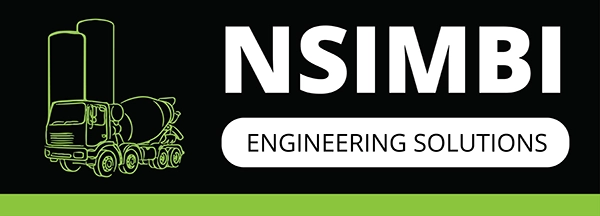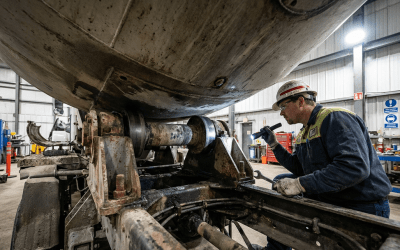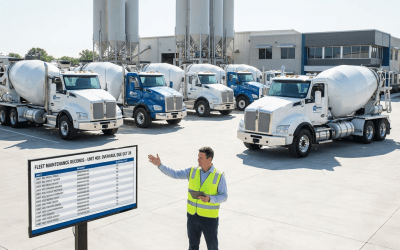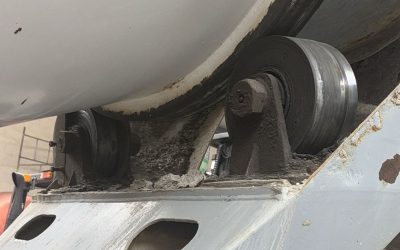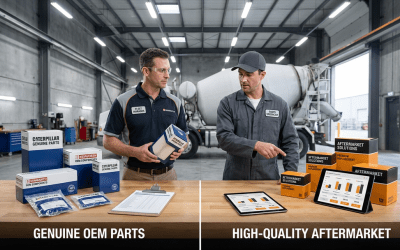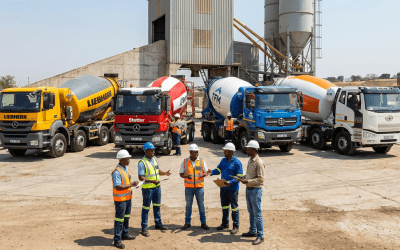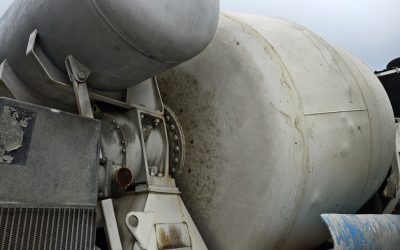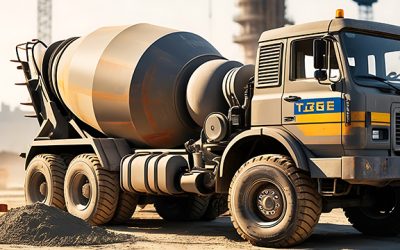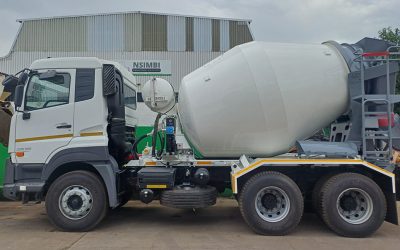Concrete Truck Mixers: The Complete Guide
Concrete truck mixers are the workhorses of SAfrica’s construction industry, serving as the critical link between concrete batching plants and construction sites across the country. From the gold mining regions of the Witwatersrand to the port developments along the Eastern Cape, these specialized vehicles ensure that high-quality concrete reaches its destination in perfect condition, ready for placement and construction.
In South Africa’s rapidly expanding construction sector, concrete truck mixers have become indispensable assets for contractors, ready-mix suppliers, and construction companies. Understanding these vehicles’ capabilities, specifications, and operational requirements is essential for anyone involved in concrete supply and construction operations.
What are Concrete Truck Mixers?
Concrete truck mixers, also known as transit mixers or concrete mixer trucks, are specialized commercial vehicles designed to transport freshly mixed concrete from batching plants to construction sites while maintaining the mixture’s quality and workability. These vehicles feature rotating drums mounted on truck chassis, equipped with helical mixing blades that keep the concrete in continuous motion during transport.
The fundamental purpose of a concrete truck mixer extends beyond simple transportation. The rotating drum serves multiple critical functions: it prevents segregation of concrete components, maintains mixture homogeneity, prevents premature setting, and can complete the mixing process when dry materials and water are combined during transport.
Modern concrete truck mixers represent sophisticated engineering solutions that must balance payload capacity, mixing efficiency, durability, and operational economy while meeting stringent safety and environmental standards.
Types of Concrete Truck Mixers
Front Discharge Mixers
Front discharge concrete mixers feature discharge chutes positioned at the front of the vehicle, directly behind the cab. This configuration offers several advantages, particularly in urban construction environments common throughout South Africa’s major cities.
The front discharge design provides excellent visibility for the operator during concrete placement, allowing precise control over discharge location and flow rate. This visibility is crucial when working in confined spaces or when accuracy is paramount, such as in high-rise construction or infrastructure projects.
Front discharge mixers typically offer superior maneuverability in tight spaces, making them ideal for residential developments, urban infill projects, and renovations where access may be restricted. The shorter overall vehicle length compared to rear discharge alternatives makes navigation through narrow streets and construction sites more manageable.
Rear Discharge Mixers
Rear discharge mixers represent the most common configuration in the South African market, featuring discharge systems positioned at the vehicle’s rear. This design offers several operational advantages that make it the preferred choice for many ready-mix operations and construction applications.
The rear discharge configuration allows for larger drum capacities within standard vehicle length constraints, maximizing payload efficiency. This increased capacity translates to fewer trips between batching plants and job sites, reducing transportation costs and improving operational efficiency.
Rear discharge mixers excel in applications requiring extended reach, such as foundation work, large slab pours, and situations where the truck cannot position directly adjacent to the placement area. The extended chute systems available with rear discharge mixers can reach over obstacles and place concrete in locations inaccessible to front discharge alternatives.
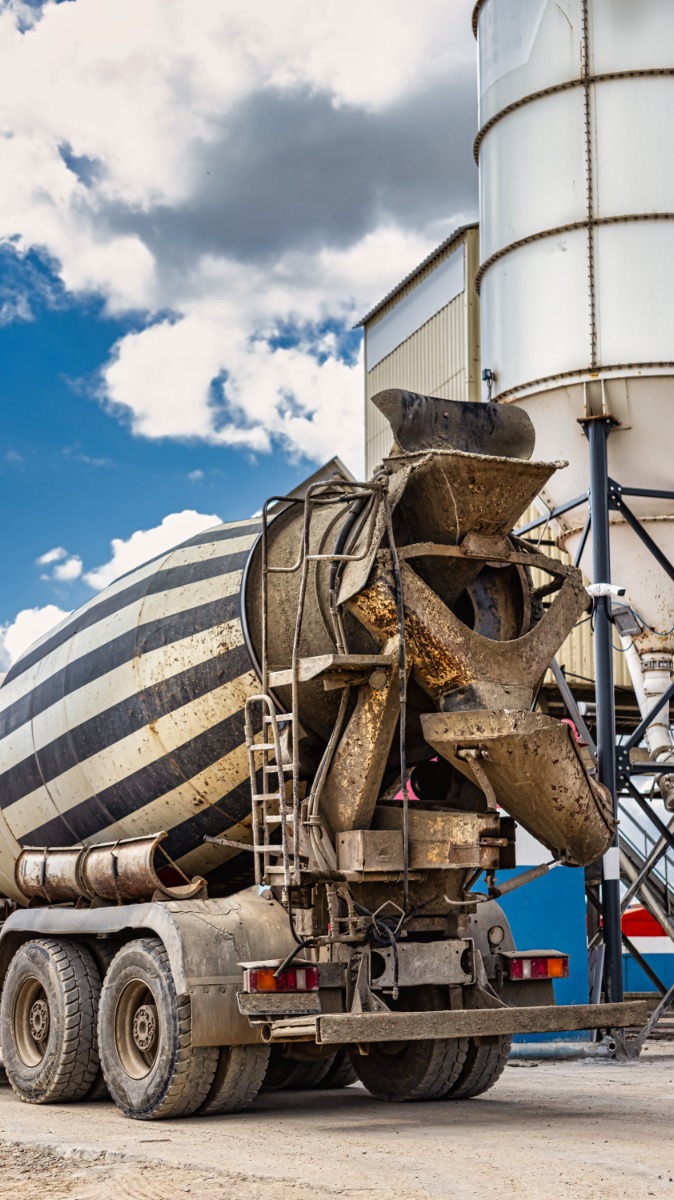
Volumetric Mixers
Volumetric concrete mixers represent specialized equipment that combines batching and mixing capabilities in a single mobile unit. These vehicles carry separate compartments for cement, aggregates, water, and admixtures, mixing concrete on-demand at the job site.
While less common in South Africa than traditional transit mixers, volumetric mixers offer unique advantages for specific applications. They eliminate time constraints associated with traditional ready-mix concrete, allowing operators to produce fresh concrete as needed throughout the workday.
Volumetric mixers excel in remote locations where access to ready-mix plants is limited, small-batch applications, and projects requiring multiple concrete grades or specialized mixes. They’re particularly valuable for maintenance work, repair projects, and situations where concrete requirements may change during construction.
Key Components and Features
Mixing Drums
The mixing drum represents the heart of any concrete truck mixer, engineered to provide efficient mixing action while withstanding the rigorous demands of commercial concrete operations. Modern mixing drums are manufactured from high-strength steel, designed to resist wear from abrasive aggregates and corrosive concrete mixtures.
Drum capacity varies significantly, typically ranging from 6 to 12 cubic meters in the South African market, with larger capacities available for specialized applications. The drum’s internal configuration features carefully designed mixing blades arranged in helical
Operational Considerations
that promote thorough mixing and efficient discharge.
The drum’s rotation speed is precisely controlled to optimize mixing efficiency while preventing segregation. Typical mixing speeds range from 8 to 12 revolutions per minute during transport, with higher speeds used for mixing and lower speeds for agitation.
Hydraulic Systems
Modern concrete truck mixers rely on sophisticated hydraulic systems to power drum rotation, operate discharge systems, and control auxiliary functions. These systems must provide reliable operation in demanding conditions while maintaining precise control over concrete placement.
The hydraulic system typically includes a power take-off (PTO) unit that draws power from the truck’s engine, hydraulic pumps that generate system pressure, and hydraulic motors that drive drum rotation. Advanced systems incorporate variable displacement pumps that automatically adjust output to match operational requirements, improving fuel efficiency and reducing wear.
Hydraulic systems in quality concrete mixers include multiple safety features, such as pressure relief valves, temperature monitoring, and emergency stop capabilities. These features protect both equipment and operators while ensuring reliable operation throughout the vehicle’s service life.
Chassis and Drivetrain
Concrete truck mixers place significant demands on chassis and drivetrain components due to their heavy payloads and challenging operating conditions. South African operators must consider factors such as gross vehicle weight ratings, axle configurations, and engine specifications when selecting mixer trucks.
Most concrete mixers operate on three or four-axle chassis configurations, depending on payload requirements and local weight regulations. The additional axles distribute weight more evenly, reducing road wear and improving vehicle stability during transport and placement operations.
Engine selection is critical for mixer truck performance, with operators typically choosing from heavy-duty diesel engines providing 300 to 500 horsepower. Modern engines incorporate emission control technologies to meet environmental standards while delivering the power and torque required for demanding concrete operations.
Operational Considerations
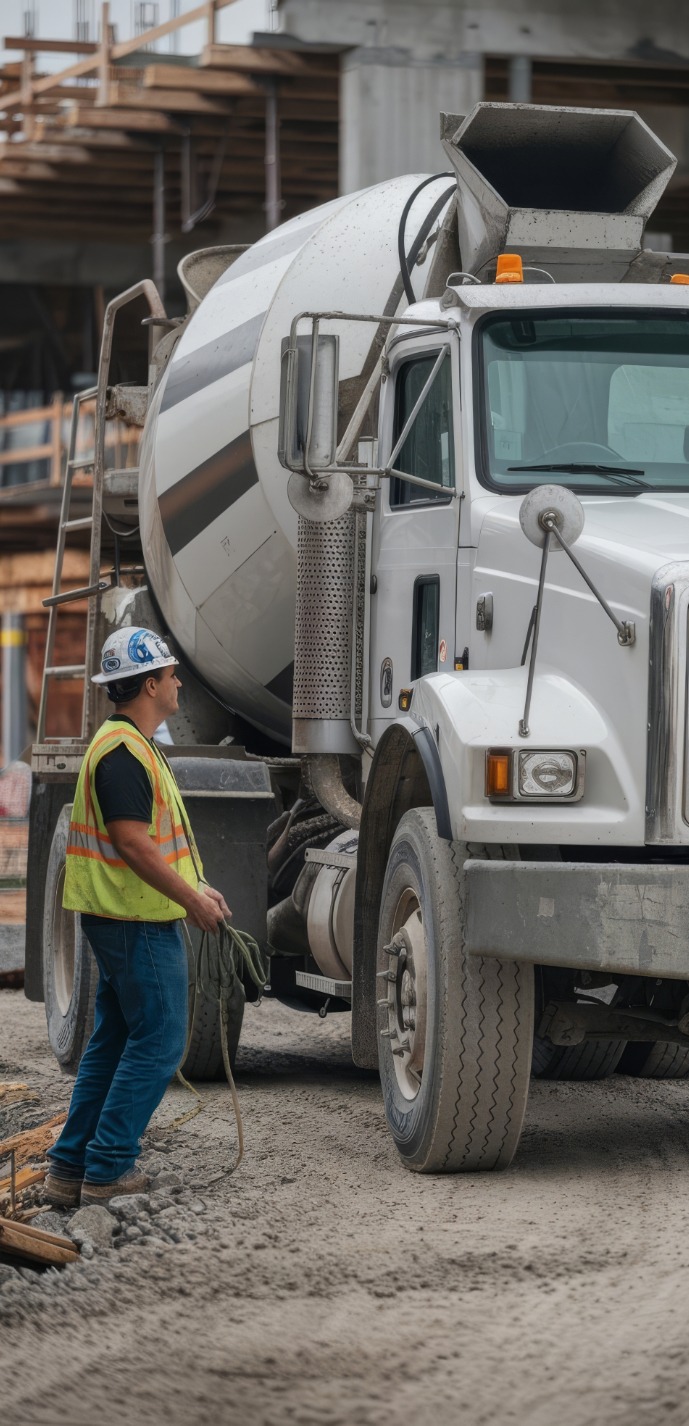
Loading and Batching
Proper loading procedures are essential for concrete mixer truck performance and longevity. Loading typically occurs at central batching plants where automated systems accurately proportion concrete ingredients and load them into mixer drums.
The loading sequence affects concrete quality and mixer performance. Typically, a portion of the mixing water enters the drum first, followed by aggregates, cement, and remaining water. This sequence promotes efficient mixing while minimizing dust generation and ensuring complete ingredient incorporation.
Loading time varies depending on batch size and plant configuration but typically requires 3 to 5 minutes per truck. Efficient loading operations minimize truck waiting time, improving fleet productivity and reducing operational costs.
Transport and Mixing
During transport, concrete mixer drums rotate continuously at slow speeds to prevent segregation and maintain mixture workability. The rotation speed and direction can be adjusted to optimize concrete condition upon arrival at the job site.
Transport time significantly impacts concrete quality, with most specifications limiting transport duration to 90 minutes from initial mixing. South African operators must carefully plan delivery routes and schedules to ensure concrete reaches job sites within acceptable time limits.
Modern mixer trucks incorporate monitoring systems that track mixing time, drum rotation, and other critical parameters. These systems help operators maintain quality standards while providing documentation for quality assurance purposes.
Discharge and Placement
Efficient concrete discharge requires coordination between mixer truck operators and placement crews. Discharge rates can be controlled through drum rotation speed and chute positioning, allowing precise concrete placement even in challenging conditions.
Proper chute management is essential for successful concrete placement. Extension chutes can extend reach up to 6 meters in some configurations, though shorter extensions provide better control and reduce segregation risks.
Discharge time varies with batch size and discharge rate but typically requires 10 to 20 minutes for complete drum emptying. Efficient discharge procedures minimize concrete waste while ensuring complete drum cleaning for subsequent loads.
Maintenance and Care
Preventive Maintenance Programs
Concrete mixer trucks require comprehensive maintenance programs to ensure reliable operation and maximize service life. The harsh operating environment, including exposure to abrasive materials and corrosive concrete mixtures, demands regular attention to critical components.
Engine maintenance follows standard heavy-duty truck intervals but may require more frequent service due to continuous PTO operation. Regular oil changes, filter replacements, and cooling system maintenance are essential for reliable engine performance.
Hydraulic system maintenance includes regular fluid changes, filter replacements, and pressure testing. The hydraulic system’s complexity requires specialized knowledge and diagnostic equipment for proper servicing.
Drum Care and Cleaning
Mixing drum maintenance represents one of the most critical aspects of mixer truck care. Concrete residue must be removed completely after each use to prevent buildup that can affect mixing efficiency and drum capacity.
Cleaning procedures typically involve washing the drum interior with high-pressure water while rotating the drum. Chemical cleaning agents may be necessary for stubborn concrete residue, though proper daily cleaning usually prevents severe buildup.
Regular inspection of mixing blades is essential, as worn blades reduce mixing efficiency and increase fuel consumption. Blade replacement requires specialized equipment and should be performed by qualified technicians.
Component Replacement and Repairs
Concrete mixer trucks experience significant wear due to their demanding operating conditions. Common wear items include mixing blades, hydraulic hoses, seals, and bearings. Establishing relationships with reliable parts suppliers is essential for minimizing downtime.
Major component failures, such as hydraulic pump replacement or drum bearing service, require specialized facilities and equipment. Planning for these services and maintaining appropriate spare parts inventories helps minimize operational disruptions.
Economic Benefits and ROI
Productivity Improvements
Concrete mixer trucks provide significant productivity benefits compared to alternative concrete supply methods. The ability to transport large volumes of ready-mix concrete directly to placement locations eliminates the need for on-site mixing equipment and reduces labor requirements.
Fleet efficiency depends on factors such as batching plant proximity, job site access, and discharge efficiency. Well-managed mixer truck operations can complete multiple deliveries per day, maximizing equipment utilization and return on investment.
Route optimization and scheduling software can further improve productivity by minimizing travel time and coordinating deliveries with construction schedules. These tools help operators maximize truck utilization while maintaining service quality.
Cost Analysis
The economics of concrete mixer truck ownership involve multiple factors, including initial purchase price, financing costs, fuel consumption, maintenance expenses, and operator wages. Understanding these costs is essential for making informed equipment decisions.
Fuel costs represent a significant operational expense, particularly given South Africa’s fuel prices and the heavy-duty nature of mixer truck operations. Modern engines and efficient hydraulic systems help minimize fuel consumption while maintaining performance.
Maintenance costs vary significantly depending on operating conditions, maintenance practices, and component quality. Preventive maintenance programs, while requiring upfront investment, typically reduce long-term costs and improve equipment reliability.
Financing Options
Several financing options are available for concrete mixer truck acquisition in South Africa, including traditional purchase, leasing arrangements, and rent-to-own programs. Each option offers different advantages depending on business requirements and financial circumstances.
Traditional purchase provides complete ownership and control but requires significant capital investment. Bank financing can spread costs over several years while building equipment equity.
Leasing arrangements reduce initial capital requirements and may provide tax advantages. Operational leases typically include maintenance coverage, simplifying fleet management and budgeting.

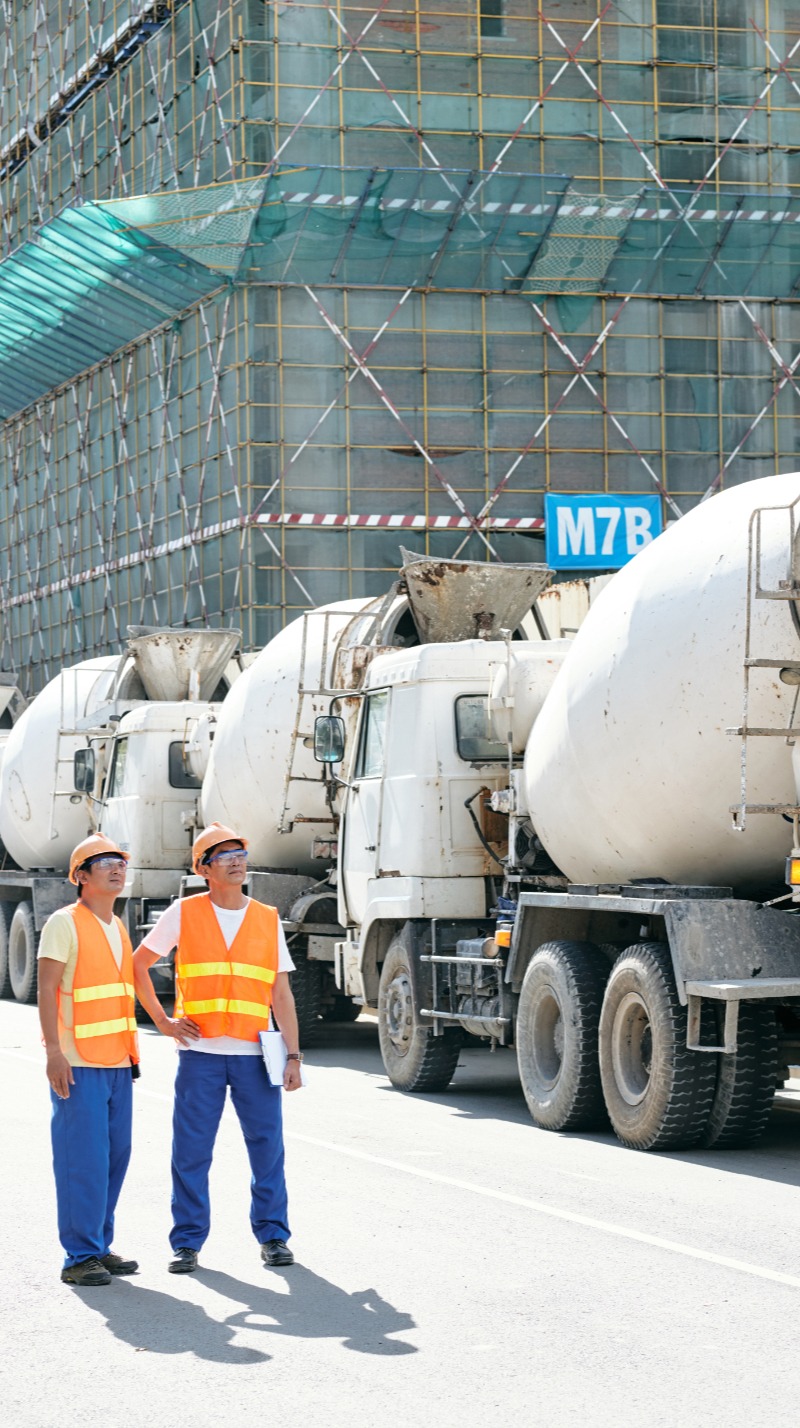
Technology and Innovation
Modern Control Systems
Contemporary concrete mixer trucks incorporate sophisticated electronic control systems that monitor and optimize performance while providing operators with real-time information about equipment status and concrete condition.
GPS tracking systems provide fleet managers with precise location information, enabling better dispatch decisions and improved customer service. These systems can also monitor driver behavior and identify opportunities for efficiency improvements.
Automated drum rotation control systems optimize mixing action based on concrete properties and transport conditions. These systems reduce operator workload while ensuring consistent concrete quality.
Future Developments
The concrete mixer truck industry continues to evolve with technological advances and changing market requirements. Electric and hybrid powertrains are under development, promising reduced emissions and operating costs.
Automation technologies may eventually enable semi-autonomous operation, though full autonomy faces significant technical and regulatory challenges in the construction environment.
Advanced materials and manufacturing techniques continue to improve component durability and reduce maintenance requirements, contributing to lower operating costs and improved reliability.
Conclusion
Concrete mixer trucks represent essential equipment for South Africa’s construction industry, providing reliable and efficient concrete transportation from batching plants to job sites. Understanding the various types, components, and operational requirements helps operators make informed decisions about equipment selection and management.
Success with concrete mixer trucks depends on proper selection, comprehensive maintenance programs, and efficient operational practices. The investment in quality equipment and proper management pays dividends through improved productivity, reduced costs, and enhanced service quality.
As South Africa’s construction industry continues to grow and modernize, concrete mixer trucks will remain fundamental to successful concrete operations. Staying current with technological developments and industry best practices ensures that these vital assets continue to provide reliable service and strong returns on investment.
Whether serving urban construction projects in major metropolitan areas or supporting infrastructure development in remote regions, concrete mixer trucks provide the reliability and efficiency essential for successful concrete operations throughout South Africa.
Talk To Us About Concrete Mixer Trucks
More Articles on Concrete Mixer Trucks
Discharge Shutes: The Ultimate Guide
When it comes to concrete delivery, the final point of contact between your mixer truck and the construction formwork is the discharge shute. This seemingly simple component plays a pivotal role in the accuracy, efficiency, and safety of the pour. Well-designed...
Cement Drum Roller Brackets
In the complex machinery of a concrete mixer truck, the massive rotating drum is the most visible component. The powerful engine and hydraulic systems get their due respect. But quietly holding it all together are the cement drum roller brackets, the unsung heroes of...
Mixer Drum Problems: Warning Signs
Your concrete mixer drum is the single most important component of your truck. It's where your product is made, and its failure can lead to catastrophic losses. While these drums are built to be tough, they are not invincible. Ignoring the early warning signs of a...
Concrete Truck Maintenance: Extend Your Mixer Truck’s Lifespan by 5 Years
A concrete mixer truck is one of the most significant capital investments for any construction or ready-mix company. Maximizing its service life is not just a maintenance goal; it's a critical financial strategy. While many fleets operate on a reactive "fix it when it...
Concrete Truck Rollers
In the demanding world of construction, the reliability of your equipment is paramount. For concrete mixer trucks, the drum rotation system is the heart of the operation, and the mixer drum rollers are the critical components that keep it beating. A failure in these...
The Evolution of Concrete Mixer Drums
The ready-mix concrete industry, a cornerstone of modern construction, owes its existence to a series of brilliant innovations in mobile mixing technology. The journey from the very first rudimentary mobile mixers to the high-tech, efficient systems we see today is a...
OEM Mixer Parts vs. Aftermarket Parts
Every fleet manager faces a constant dilemma: when a part on a concrete mixer truck needs replacing, do you choose the Original Equipment Manufacturer - OEM mixer parts, or do you opt for a less expensive aftermarket alternative? The decision is not always...
Concrete Mixer Truck Brands: A Complete Comparison
Choosing the right concrete mixer truck brands is a major decision for any construction or ready-mix company. The South African market is dominated by a few key players, each with its own reputation for performance, reliability, and cost of ownership. Four of the most...
Nsimbi’s New Concrete Mixer Truck
Concrete Mixer Drum Repair
The mixing drum is the heart of any concrete mixer truck, and when it requires attention, professional concrete mixer drum repair becomes essential for maintaining operational efficiency. At Nsimbi Engineering, we understand that timely and expert drum repair services...
Diesel Concrete Mixer Trucks
Diesel Concrete Mixer Trucks: Power, Performance, and Reliability In the construction industry, efficiency and reliability are paramount to project success. Diesel concrete mixer trucks have emerged as the backbone of modern concrete delivery systems, offering...
Concrete Agitator Trucks in Modern Construction
In the ever-evolving world of construction, efficiency and reliability are paramount. One piece of equipment that plays a vital role in ensuring seamless concrete delivery is the concrete agitator truck. At Nsimbi Engineering, we understand how crucial it is for...
Concrete Mixer Truck Drum Blades
In the construction industry, precision, efficiency, and reliability are the foundation of every successful project. At the heart of every concrete delivery system lies a vital yet often overlooked component: concrete mixer truck drum blades. These internal blades...
Concrete Truck Chutes
In the world of concrete delivery, cement mixer truck chutes play a pivotal role in ensuring accurate placement and efficient pouring operations. At Nsimbi Engineering, we recognize that high-quality concrete truck chutes are fundamental components that directly...
Affordable Concrete Mixer Trucks
In the fast-paced world of construction, getting high-quality equipment without overspending can be a challenge. That’s where Nsimbi Engineering steps in, offering affordable concrete mixer trucks that deliver reliability, efficiency, and long-term value. Whether...
Concrete Mixer Trucks for Sale: Your Complete Buying Guide
Finding quality concrete mixer trucks for sale requires careful evaluation of equipment specifications, manufacturer reputation, and long-term value considerations. The right concrete mixer trucks can transform construction operations by providing reliable concrete...
Volumetric Concrete Mixer Trucks: Revolutionary On-Site Concrete Production
Volumetric cement mixer trucks represent the cutting edge of mobile concrete production technology, delivering fresh concrete directly at job sites while providing unprecedented control over mix designs and quantities. These innovative trucks combine advanced...
